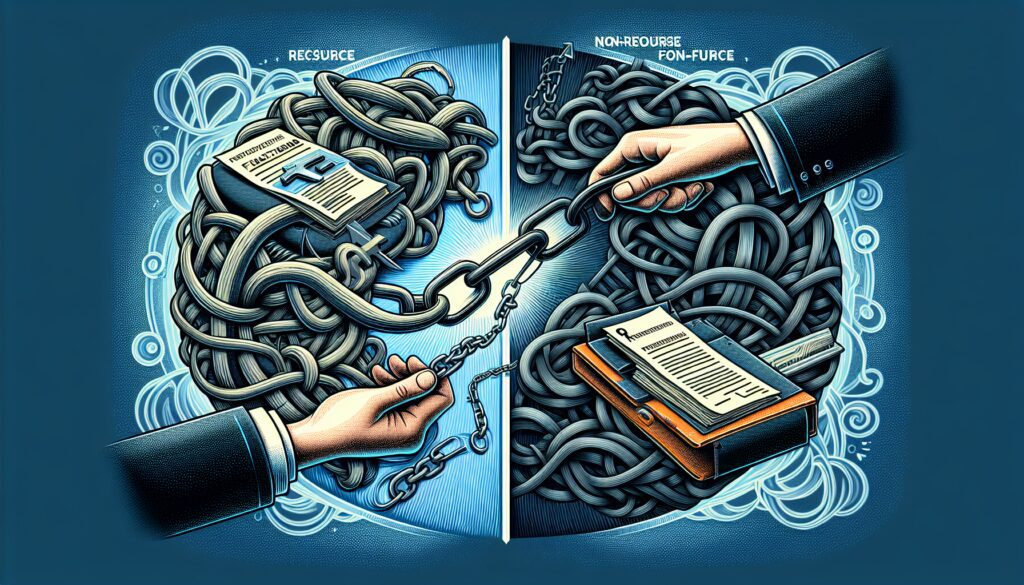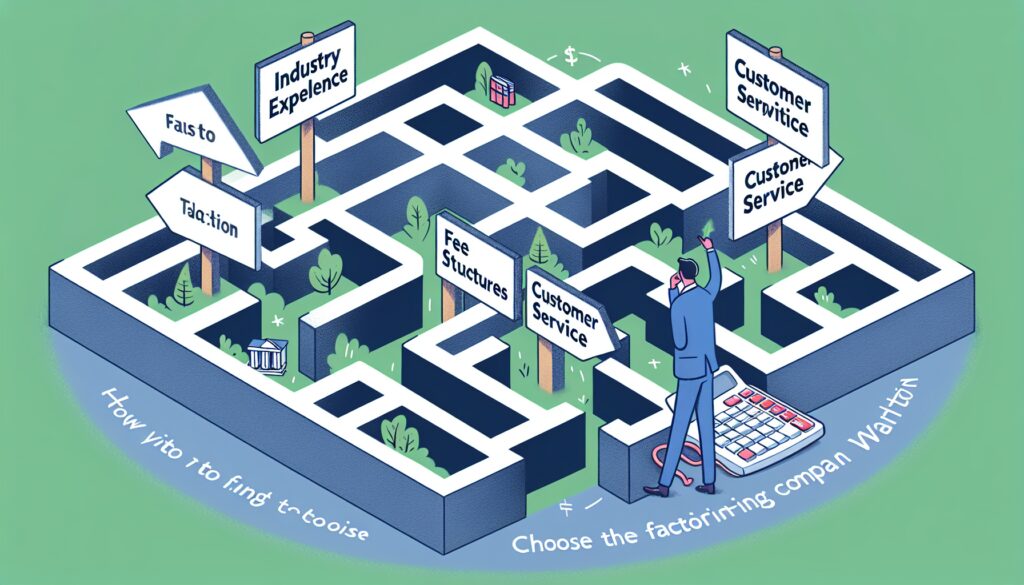
Washington Payroll Funding
If you want to enhance your business’s cash flow in Washington, consider leveraging the services of factoring companies. A Washington factoring company can offer instant access to funds by buying your outstanding invoices. This enables you to handle operational expenses and capitalize on growth opportunities without the delay of customer payments clearing. We delve into the premier Washington factoring companies, detailing their offerings, advantages, and how they tackle business cash flow problems.
Key Takeaways
- Factoring companies in Washington offer businesses a way to convert unpaid invoices into immediate cash, providing crucial financial support without adding debt to their balance sheets.
- Choosing a local factoring company can provide businesses with personalized service, local market expertise, and faster decision-making processes tailored to the specific needs of Washington’s industry landscape.
- Businesses must consider their specific needs, growth projections, and industry dynamics when deciding between factoring and traditional bank loans. Factoring can offer flexible funding and specialized services but may come at a higher cost.
Understanding Factoring Companies in Washington

Factoring companies provide a vital service for Washington businesses experiencing cash flow constraints. The concept of receivable factoring or accounts receivable factoring involves a company selling its outstanding invoices to a third-party entity, known as the factor, at a reduced rate. This transaction enables firms to turn their unpaid invoices into immediate funds, bridging the challenging time between performing services or delivering products and receiving client payment.
The impact of a factoring engagement is significant for enterprises needing financial support. When an enterprise allies with such a financier, it can immediately sell its newly created invoices. The factor promptly provides a substantial portion of the invoice value—commonly 80-90%—in advance. After the client settles the bill, factor issues any remaining sum back to said enterprise minus an agreed-upon small fee for this facilitation process that ensures steady operational capital infusion, thus enabling them to manage ongoing expenses while investing towards expansion prospects or retaining solvency amidst slow business cycles.
Choosing one within Washington offers distinct advantages because local factors are often more attuned to regional commercial challenges and specific legal requirements affecting operations there. This can translate into tailored services better suiting local organizations’ needs and swifter processing due partly to familiarity with particulars influencing statewide entities.
Building relationships with nearby financiers encourages strong partnerships that provide accelerated backing—key components when navigating complex fiscal elements tied closely alongside effective corporate finance management practices required in today’s ever-evolving economic landscapes across states and global markets.
The Invoice Factoring Process
The procedure is set into motion once a business engages with an invoice factoring service. This begins after goods or services have been rendered and the corresponding bill issued to a customer. The company can now forward that invoice to their selected factoring entity. The factor proceeds with an expedited evaluation of the submitted invoice and the debtor’s creditworthiness. This pivotal phase enables them to gauge payment probability and fixate on an appropriate advance rate.
Following confirmation, it is common for businesses to receive around 80-90% of what they are owed from their chosen factoring firm in no time—often within one or two days post-invoice submission. Such swift access to capital permits companies to face immediate fiscal demands to relieve and negate dependence on protracted client remittance schedules—an acclaimed benefit from utilizing such financial mechanisms.
This operation culminates when customers settle up their accounts, enabling factors to collect your accounts receivables before relinquishing any outstanding sum back to the initial creditors once deducting requisite charges for provided services—which tend typically to be minor fractions anchored against overall billed amounts. Fundamentally designed as uncomplicated and evident by nature throughout its scope, it ensures enterprises can devote undistracted attention to mainline activities rather than being consumed with collecting dues themselves.
Benefits of Choosing a Washington Factoring Company
Opting for a factoring company based in Washington can offer significant benefits tailored to the distinctive requirements of local businesses. The standout advantage is an immediate boost to cash flow without accruing extra debt. Factoring companies, instead of bank loans, turn your accounts receivable into ready money, which offers vital financial leverage that enables you to exploit new opportunities or weather rough times quickly. Such financing options are particularly beneficial for small and medium-sized enterprises that may face hurdles when obtaining traditional funding.
An additional benefit of working with factoring firms within Washington is the diminished fiscal exposure they provide. Many such entities do more than just invoice processing. They also conduct credit assessments and handle collections—services essential for informed customer credit extension decisions by the business owner. For smaller organizations lacking extensive resources, this represents a safety net against potential defaults on payments due from customers. It allows them to concentrate fully on core business activities while mitigating risks associated with unpaid debts.
Localized service gives Washington-based factors an edge over their national and global counterparts because of their nuanced understanding of regional market dynamics specific industries might face at any given time, including challenges or growth prospects distinctively perceived by those intimately familiar with local economic conditions. Receive tailored financial solutions along with rapid support.
Tech start-ups located in Seattle and manufacturing around Spokane town scenarios firm could help via:
- Financial strategies custom-fitted per one’s own enterprise’s circumstances.
- Expert advice concerning intricate aspects linked to managing finances
- Assistance stretching toward achieving developmental goals set forth
The combination of this kind of flexible approach and staffing agencies looking for talent-suitable positions has powerfully positive implications for longevity and productivity for all types of ventures operating within state parameters.
Types of Factoring Services Available

Invoice factoring is a key financial strategy for maintaining cash flow by leveraging unpaid invoices. Washington-based businesses can access various factoring services tailored to meet different fiscal needs and company structures.
The available types of factoring services are:
- Recourse Factoring
- Non-recourse Factoring
- Spot Factoring
- Whole Ledger Factoring
Businesses need to weigh the advantages and implications of each option.
With recourse factoring, while fees are more favorable, companies must repurchase any uncollected invoices after a predetermined timeframe. Businesses with solid customer relationships and a consistent record of timely payments typically choose this type. Conversely, non-recourse favoriting affords more significant safeguards against the risk posed by customers who may become insolvent or fail to pay, but it does come at increased expense. Companies engaging with newer clients or those with uncertain solvency often find this option appealing.
When management prefers flexibility in managing cash flow—mainly when occasional liquidity challenges arise or during seasons when business fluctuates—spot factoring becomes useful as it permits organizations to factor only select invoices on demand.
In contrast, whole ledger factoring, which requires including all outstanding invoices from a company’s books into the financing arrangement—a method preferred by enterprises desiring uniformity in their financing strategies leads to stable continued inflows, enabling better budget planning and projections.
Recourse vs. Non-Recourse Factoring
Choosing between recourse and non-recourse factoring is critical for companies considering invoice factoring services. With recourse factoring, which tends to be more common, the business must repurchase any unpaid invoices after an agreed-upon time frame, often 90 to 120 days. Consequently, there’s some credit risk retention since the company must cover its customers’ failures to pay.
This type of arrangement can lead to reduced fees because of shared risk. Hence, it appeals significantly to businesses that are confident about their customers’ payment capabilities.
In contrast, non-recourse factoring provides businesses with more extraordinary safeguarding measures.
- Herein lies the responsibility of the factoring company if clients’ consumers don’t fulfill payment obligations.
- The liabilities associated with customer insolvency or inability due to credit reasons fall onto the shoulders of the factor.
- Such transference offers assurance, mainly when dealing with uncertain new clientele or risky transactions.
- Nonetheless, one pays a premium for this protection as fees attached tend to be higher than those in a recourse setup.
Businesses deliberate over whether they would prefer recourse or non-recourse based upon elements like inherent risk aversion levels within operations management structures, distinctiveness present amidst their consumer base, and overarching fiscal schematics laid out internally. Recourse setups become compelling opportunities, especially for entities boasting solidly established clientele with demonstrable financial dependability, highlighting potential cost savings alongside cash flow enhancements.
Nonetheless, nonrecourse rendering a heightened sense of security might be preferable for firms venturing into uncharted commercial territories engaging unfamiliar tradesmen or particular sectors known long billing cycles may find solace herein despite additional costs.
It is essential to realize that Terminologies about recourse versus nonrecourse factoring may differ across various manufacturing companies.
For instance, specific nonrecourse deals may only protect against client bankruptcy, while others expand coverage to include lower-paying accounts. Therefore, it is imperative to understand the exact terms entailed in a contract and grasp what types of risks are shifted to a factor company. An attentive examination of what’s necessitated and detailed insight regarding diverse offerings from alternative factors will enable Washingtonian entrepreneurs with their fiscal objectives and risk moderation tactics.
Selective Invoice Factoring
Spot factoring offers a highly flexible solution for managing cash flow to businesses in Washington. It lets them pick particular invoices for factoring instead of collecting their full accounts receivable. This flexibility mainly serves those with seasonal business patterns or occasional cash flow shortfalls.
The selective invoice factoring procedure is designed for simplicity and efficiency. Companies can handpick individual or multiple invoices and present them to a factoring company, providing swift funding.
The strategic advantages this method presents allow organizations to:
- Promptly obtain necessary funds
- Steer clear of enduring commitments linked with long-term contracts
- Address unforeseen financial demands or seize expansion opportunities
This solution is optimal for entities that typically maintain consistent cash flows yet sometimes require rapid capital infusion.
Selective invoice factoring’s key benefit lies in its versatility, tailored to various business needs. For example, start-ups within Washington could leverage it when tackling large orders or projects without needing ongoing involvement in creating all subsequent invoices. A more extensive, established operation might utilize spot factoring during lulls or direct specialized endeavors toward specific aims.
Industry-Specific Factoring Solutions

Factoring companies operating within Washington State are acutely aware of the unique fiscal challenges businesses face in diverse sectors, which are attributable to the multifaceted economy there. These providers of factoring services extend their offerings beyond generic solutions, delivering tailored expertise and specialized factoring.
Transportation and Trucking Factoring
Washington’s trucking and transportation sector faces distinct challenges regarding cash flow, primarily due to the extended period between providing services and receiving customer payments. Companies that offer factoring services cater specifically to this industry by extending immediate cash flow solutions against freight bills, effectively narrowing the payment time discrepancy.
Trucking companies benefit from the rapidity of funding provided through transportation factoring. These businesses can often receive as much as 97% of their unpaid invoices’ value within a day after approval and verification. Such practicality is pivotal for those who require swift access to funds to meet urgent financial obligations such as fuel costs, vehicle maintenance, and staff salaries amidst lengthy client payment protocols that may extend beyond two months.
Regarding traditional invoice factoring offerings, several firms present bespoke ancillary services crucial for maintaining uninterrupted transport operations, including advancements in fuel purchases and issuing fuel cards. By providing additional resources tailored for truckers’ needs alongside managing invoices, factoring line establishments support a more robust handling of finances, thus enabling consistent business workflow when capital may be tight.
For expansion endeavors or fleet enhancement goals within Washington’s trucking enterprises seeking an alternative route aside from bank loans’ typical stipulations, the solution lies with factors that proffer competitive price points and tailor-made financing arrangements granting greater operational nimbleness than standard lending routes afford—a substantial boon for remaining agile in technology advancement frontiers while ensuring fleets are contemporary.
Healthcare and Medical Factoring
In Washington, as with many others, healthcare professionals face distinct financial barriers, particularly when managing cash flow amid convoluted insurance reimbursement schemes. Factoring companies have developed tailored services for healthcare providers to combat these issues. These firms offer immediate capital so that health businesses can afford operational costs and continue delivering excellent care while they await insurance reimbursements.
A primary benefit of medical factoring is its proficiency in processing government receivables. Numerous health service providers in Washington deal with public programs such as Medicare and Medicaid, often with extended payment durations.
By utilizing factoring for these accounts receivable, medical clinics can:
- Secure upfront financing
- Ensure uninterrupted management of critical outlays like salaries and medical provisions.
- This is especially vital for smaller establishments or niche practices lacking robust fiscal buffers against prolonged payout periods.
Medical factoring brings many valuable features due to its quickness and simplicity.
Here’s what stands out about healthcare factoring:
- Decisions from healthcare-specific factoring firms typically come within 24 to 48 hours—making them an efficient choice during fiscal tight spots or unforeseen expenses.
- Such companies boast specialized knowledge of evaluating medical claims and invoicing, translating into quicker payments for healthcare entities.
- By consolidating their economic operations through factors’ expertise, medical professionals can dedicate more resources to their pivotal role—ensuring patients receive exceptional treatment.
Construction and Manufacturing Factoring
The project-based nature of the construction and manufacturing industries in Washington can lead to distinctive cash flow difficulties due to often lengthy payment cycles. These businesses effectively address their unique challenges related to accounts receivable-driven cash flows by leveraging factoring. For those in construction, it means they can stabilize their fluctuating finances that stem from irregular billing periods — a critical advantage allowing them to embark on new endeavors and sustain day-to-day expenditures.
Factoring proves especially useful for the construction sector when dealing with extended payment terms customary with sizable ventures. After completing projects and sending out bills, it’s common for companies to wait for payments for 60-90 days or more.
In this interim, where there are still obligations such as compensating subcontractors and purchasing necessary supplies, amongst other operating expenses, factored services come into play by granting immediate access to a substantial proportion of what is owed on invoices.
Consequently, it facilitates ongoing workflow continuity while simultaneously enabling the pursuit of additional contracts without being hindered by outstanding receivables.
Washington’s manufacturers derive multiple advantages from factoring services, which include:
- Transforming accounts receivable into swift capital allows continuous supplier payments and adherence to production timetables even amidst unpaid customer invoices.
- Keeping consistent production timelines aids in sustaining efficiency along with profitability — key elements within any manufacturing enterprise.
- We are empowering investment towards raw materials procurement, enhancements in equipment, or an upscaling of productivity capacity independent of client remittances timetable.
- We are encouraging fiscal nimbleness, thereby quickening responses to market needs. This leads to potentially lucrative opportunities that directly contribute to growth prospects.
Maintaining competitive leverage over rivals is crucial for those in manufacturing. Here, manufacturing factoring provides foundational support, aiding entities in firmly establishing themselves amid dynamic industry landscapes.
How to Choose the Right Factoring Company in Washington

Selecting a suitable factoring company in Washington is an essential step that can significantly affect your business’s financial health and expansion capabilities. It’s vital to consider the industry knowledge of the factoring company.
Those with expertise in your area can provide tailored advice and services to your needs. They know various aspects unique to your field, such as payment timelines and typical industry hurdles, allowing them to customize their offerings effectively.
When choosing a factoring service provider in Washington, consider factors like:
- Understanding of the sector
- Credibility and historical performance
- Adaptability and personalization of offerings
- Support quality and availability
- Costs associated with services
- Agreements regarding conditions
Analyze these elements thoughtfully so you select a factor whose objectives complement yours.
It’s paramount to review each potential partner’s pricing structures and how much cash they will advance against invoices during this decision-making process. The fee usually represents a portion of the invoice value. Still, it could be influenced by variables including type of business operation, client credit reliability, or billable amounts involved per period. Advance rates revealing what proportion one receives from billing upfront also carry weighty considerations for selection criteria.
Nevertheless, remember that lower does not always equate to favorable terms. Hence, every component should be appraised alongside the provided amenities before finalizing agreements. This might spell an economic advantage over time for enterprise concerns, specifically yours when engaging companies rendering their respective facilities roles amidst transactions hereunder.
Evaluating Fee Structures and Advance Rates
In selecting a factoring company within Washington, it is paramount to scrutinize both the fee structure and advance rates they provide. These factors heavily influence the overall effectiveness and cost of utilizing factoring services for your enterprise. It’s imperative to weigh options across different factoring companies to secure an option that most effectively meets your financial requirements at minimal costs.
The variety of fee structures offered by factoring can be broad, encompassing flat fees, volume-based tiered rates, or even combinations that include initial and recurring charges. Additional service-related fees, such as conducting credit checks or executing wire transfers, may also apply. Look beyond just the primary rate advertised. Instead, focus on calculating the cumulative expense incurred from using these services over time. Grasping how these fees are assessed—whether tied to invoice face value or calculated based on advanced funds—is crucial during evaluation.
Advance rates—the proportion of immediate cash provided against your invoices—typically oscillate between 70% and 90%. Factors like industry type, client credit standing, and perceived risk levels attributed to your business could cause variations in these percentages. A larger upfront percentage translates into improved immediate cash flow but might simultaneously attract steeper service charges. Aligning advance rates with your liquidity needs and customer solvency considerations should guide comparisons here.
It’s important not to overlook specialized providers tailored toward small-scale operations. For instance, Bankers Factoring focuses on smaller businesses boasting less than ten employees generating up to $5 million yearly and offers solutions aptly suited for modest-sized invoicing challenges. These solutions can prove immensely valuable, especially for compact enterprises seeking customized immediate cash flow support within Washington.
Importance of Factoring Customer Service and Support
In factoring, delivering superb customer service and support is not merely a luxury. It’s an indispensable element that can profoundly influence your company’s financial activities and its triumph. When selecting a factoring partner in Washington, ensuring they provide outstanding customer service tailored to your unique business needs should be at the top of your criteria list.
A stellar factoring firm offering excellent customer service enhances your operation by:
- Skillfully overseeing credit assessments and debt collections
- Presenting invaluable evaluations concerning client credit histories
- Assisting you with intelligent decision-making on extending terms of credit
- Streamlining the procedure for pursuing overdue payments
Engaging with an effective factoring ally diverts attention away from intricate fiscal management chores towards nurturing growth within your enterprise and improving client relations.
The provision of a committed account manager stands out as a hallmark signifier indicating superior levels of care afforded to customers. The advantage gained through having this consistent point of contact with someone intimately familiar with your venture and the distinct obstacles faced cannot be overstated.
This personalized tactic ensures expedited resolution times for any complications or questions that may arise — whether urgent invoice financing is required to cover unexpected expenditures, clarifications regarding a particular client’s financial standing, or aid needed when reconciling received funds — all made possible due to comprehensive backing from someone attuned specifically to enabling efficient operations throughout each aspect about running your establishment.
Case Studies of Successful Factoring in Washington

Businesses of various sizes and from diverse sectors in Washington have found invoice factoring to be a versatile and effective financial strategy. From modest boutiques to expansive industrial firms, factoring has been crucial for enhancing cash management, minimizing economic perils, and fostering expansion efforts. These instances underscore the tangible advantages of invoice factoring and how it can be customized to suit distinct corporate requirements.
For instance, there’s an inspiring tale about a small retail company based in Washington that boosted its cash flow significantly through selective engagement in invoice factoring practices. This strategic maneuver enabled them to dramatically enhance their fiscal oversight, unlocking new avenues for growth that might otherwise have remained inaccessible. The success story reveals that even minimal use of such financing techniques can influence an enterprise’s fiscal well-being and potential for progression.
Likewise noteworthy is the experience of a tech startup in Washington that adopted this innovative funding method to cover operational costs while pursuing rapid growth. By swiftly converting outstanding invoices into immediate funds via invoice factoring, they achieved continuous positive cash flow during pivotal development stages—providing leeway for market extension without being tied by conventional lending restraints.
Here, we see evidence supporting the idea that emerging companies with accelerated growth aspirations may find exceptional value in engaging with receivables-based finance options like this one within high-velocity industries.
Small Business Success Story
In Washington, a modest-sized wholesaler was confronted with the all-too-familiar dilemma of synchronizing growth prospects with cash flow limitations. Eager for expansion but wary of accruing conventional debt and its associated financial pressures, the proprietor found a solution through an alternative financing strategy: selective invoice factoring.
The alliance with a nearby factoring company offered numerous advantages to the wholesaler:
- The capability to factor only chosen invoices when necessary
- Provision of immediate liquidity during instances such as sizable orders or seasonal shifts in demand
- Access to services like Bankers Factoring that expedited payments on specified invoices within one day
- A significant enhancement in managing their cash flows
This level of flexibility became crucial for the continued success and agility of the business.
Transformative is apt to describe how this strategic approach financially reinvigorated the establishment. With the direct conversion from outstanding receivables into ready-to-use funds, they could accept heftier purchase requests confidently, broaden inventory scope, and even launch another venue.
According to the owners, selective invoice factoring provided prompt operational capital and an added benefit—the cessation of clients’ pending payment anxieties.
This narrative illustrates a case where local small enterprises can flourish by adeptly navigating constraints specifically to cash on hand. It shows that accessibly working through receivable assets without resorting to traditional bank loans proves feasible and astoundingly effective.
Startup Growth Through Factoring
In the bustling tech scene of Washington, an emerging startup reached a pivotal moment. Having crafted a groundbreaking product and secured substantial contracts, the firm faced delayed cash flow due to lengthy payment schedules from its corporate customers. Given its brief history and minimal assets, conventional financing avenues were scarcely available. Consequently, factoring emerged as a viable option for bridging their working capital shortfall.
The collaboration with a factoring company adept in supporting tech startups enabled them to:
- Swiftly turn accounts receivable into accessible working capital
- Manage operational costs
- Allocate resources toward enhancing their product
- Recruit additional team members in response to increasing demands
Factoring’s adaptability was especially beneficial because it allowed the startup to selectively finance invoices according to immediate financial needs while controlling financing expenses.
Utilizing factoring markedly propelled this startup’s growth journey by ensuring steady cash flow, which empowered them to undertake new contracts and widen their commercial influence without fretting over fulfilling payroll or other essential operational outlays.
Bankers Factoring notably mirrors such success narratives among high-promise entities witnessing sustained expansion and monthly sales escalation through similar services. This exemplifies that factoring stands out within Washington’s competitive marketplace as an instrumental mechanism for startups eager for swift expansion and grasping industry opportunities.
Large Enterprise Efficiency
In Washington, a large manufacturing firm encountered difficulties managing its substantial accounts receivable and sustaining cash flow for its broad operations. Despite being well-established and sizable in the market, traditional financing avenues weren’t meeting the company’s flexible and effective working capital management needs. The company discovered a solution through non-recourse factoring, which markedly improved its cash flow management.
Adopting an all-encompassing non-recourse factoring plan enabled the manufacturer to quickly turn much of its accounts receivable into immediate funds. This not only augmented liquidity but also shifted the risk of unpaid invoices over to the factoring company—a key benefit considering potential losses from customer bankruptcy or extended defaults were significant risks due to industry-standard large orders.
This transition brought considerable operational efficiencies. With bolstered and consistent cash flows, negotiating better supplier deals became possible. Investments could be made in new machinery to amplify production capabilities, and even venturing into fresh markets was achievable—an impressive feat given that these opportunities often require upfront expenditures that might otherwise strain resources.
Notably, shifting away from collections and credit oversight freed up leadership attention for central business planning and optimizing daily operations. This proves that utilizing such financial mechanisms as recourse factoring can increase economic proficiency and strategic development within major enterprises located throughout Washington state.
Is Factoring Right for Your Washington Business?
To evaluate whether factoring aligns with your Washington business’s financial requirements, you must consider your company’s particular needs, development phase, and the sector’s unique trends.
Factoring might be an optimal choice for businesses that:
- Require immediate cash flow enhancement
- Are encountering swift expansion phases
- Deal with seasonal shifts in market demand
- Possess a robust clientele yet face extended payment terms or irregular cash flows
A principal benefit of factoring is that it extends credit opportunities to companies that may otherwise fall short when applying for traditional bank loans. Should your enterprise have issues like imperfect credit standings or insufficient assets for collateral as typically demanded by banks, factoring stands out as a solid substitute option.
With its emphasis on your customers’ solvency rather than your firm’s financial standing, this alternative funding method becomes particularly appealing to burgeoning startups and small-to-medium-sized entities in Washington.
Recognize that factoring does not universally fit every business model. For example, firms operating on narrow profit margins may find absorbing the costs associated with factors impractical. Likewise, companies relying heavily on one primary client or those within sectors prone to frequent returns or disputes could encounter obstacles under manufacturing agreements.
Additionally, look at whether traditional financing methods might be more beneficial for growing ventures enjoying steady revenue streams and predictable finances over time. Such scenarios often reveal favorable conditions through conventional banking routes.
Comparing Factoring to Traditional Bank Loans
Recognizing the distinctions between factoring companies and traditional bank loans is essential for assessing your Washington business’s financing alternatives. Notably, the requirement for collateral sets them apart. While banks frequently necessitate that you pledge business assets as security, factoring companies use your outstanding invoices directly as collateral. This could provide a substantial advantage to businesses with limited tangible assets or those who prefer not to encumber their current assets within loan contracts.
Key differences are the approval process and the speed at which funding is received. Factoring can expedite funding by offering faster approvals than traditional banks—getting approved within days rather than enduring weeks or months required by extensive documentation associated with bank loans. Such swift access to funds via factoring could be critical in addressing immediate cash flow challenges or capitalizing on pressing opportunities.
When considering the impact on financial statements, it’s clear that factoring arrangements offer distinct benefits over debt acquired through traditional lending means. With no additional liability appearing on your balance sheet thanks to invoice sales conducted through factors—instead of taking out a new loan—you avoid increasing indebtedness while potentially enhancing eligibility for other types of future financing given more favorable financial ratios.
Despite these unique advantages offered by factoring services—including higher flexibility and adaptability in scaling alongside sales—there remains a significant cost consideration over time relative to conventional banking options. This is particularly true if one boasts solid credit standings since terms provided often translate into lower interest rates, rendering longer-term needs cheaper.
Identifying Your Business Needs
Before opting for invoice factoring as a solution to improve cash flow, you must conduct a detailed analysis of your financial requirements and objectives specific to your Washington-based business. Scrutinize the pattern of your cash flows, pinpointing consistent gaps or difficulties in fulfilling financial commitments.
Consideration should be given to factoring’s aspects such as:
- the duration of payment cycles
- customer punctuality with payments
- potential seasonal variations affecting cash flow
This scrutiny will help you assess whether the prompt influx of funds from factoring coincides with your financial needs.
Subsequently, project how much growth you anticipate and what new ventures may arise for your company. If scaling up operations or embarking on sizable projects appears, turning to invoice factoring could provide the essential working capital necessary for expansion without being confined by conventional loan limitations. For example, suppose you’re at the helm of a small-scale enterprise aiming to stock more inventory, hire extra personnel, or acquire fresh equipment. In that case, it might necessitate immediate access to funds – which invoice factoring can expedite without pending customer remunerations.
When contemplating whether factoring suits your context best, consider both industry-specific characteristics and unique business considerations. Firms grappling with seasonally affected liquidity, such as those within retail, construction, and retail sectors, could benefit immensely from selective approaches to billing, where only chosen invoices undergo factors during bustling times and shortfall scenarios, providing precise alignment fiscal cycle.
Managing businesses under industries hallmarked for longer than average tenure before realization due income streams such as manufacturing healthcare standout candidates reap advantages bestowed through receivables finance stabilize monetary footing undertake bold strides forward achieving ambitious goals.
Washington Invoice Factoring Summary
As we’ve explored throughout this comprehensive guide, factoring companies in Washington offer a versatile and powerful financial tool for businesses across various industries. From small retail shops to large manufacturing enterprises, factoring solves common cash flow challenges, enabling companies to convert unpaid invoices into immediate working capital. The benefits of factoring extend beyond cash flow management, allowing businesses to grow, invest in new opportunities, and navigate financial challenges more flexibly.
The key to leveraging factoring successfully lies in understanding your business’s unique needs and choosing the right factoring partner. Whether you opt for recourse or non-recourse factoring, selective invoice factoring, or industry-specific solutions, the right factoring arrangement can transform your financial operations. As Washington’s business landscape continues to evolve, factoring remains a valuable alternative to traditional financing, providing the agility and support necessary for businesses to thrive in a competitive environment. By carefully evaluating your options and aligning factoring services with your business goals, you can unlock new potential for growth and success in the vibrant Washington economy.
Frequently Asked Questions
What is the typical advance rate for factoring in Washington?
In Washington, the standard range for an advance rate provided by a factoring company lies between 70% and 90% of the invoice value. This percentage can fluctuate based on several considerations, including the industry involved, the creditworthiness of clients, and terms set by the factoring firm itself. Established businesses or specific sectors may be eligible for higher advance rates from some factors.
How long does the factoring approval process usually take?
Compared to the slower option of traditional bank loans, the approval process for factoring typically ranges from 3 to 10 business days for initial setup. Following this, funding is often accomplished within a day after submitting invoices.
Is factoring only for businesses with cash flow problems?
No, factoring is not only for businesses with cash flow problems. Many successful and growing companies use factoring as a strategic financial tool to support expansion, take on larger projects, or improve their working capital position.
It can benefit businesses experiencing rapid growth or industries with long payment cycles.
Can I choose which invoices to factor in, or do I have to factor all of my receivables?
Yes, selective invoice factoring allows you to choose specific invoices to factor providing flexibility for varying cash flow needs and maintaining direct customer relationships.
Discuss the terms with potential factoring partners to ensure any minimum volume or value requirements are understood.
How does factoring affect my relationship with my customers?
Professional factoring companies in Washington understand that your customer relationships are vital, and they engage with customers tactfully and proficiently to preserve robust business connections. Opting for a factoring company that boasts industry-specific expertise and a history of favorable customer interactions is crucial.
Ready for the owner-employees of Bankers Factoring to grow your business with our award-winning receivable factor financing, including bad debt protection? Use our fast online factoring application or call 866-598-4295.
Fast Funding
"*" indicates required fields

